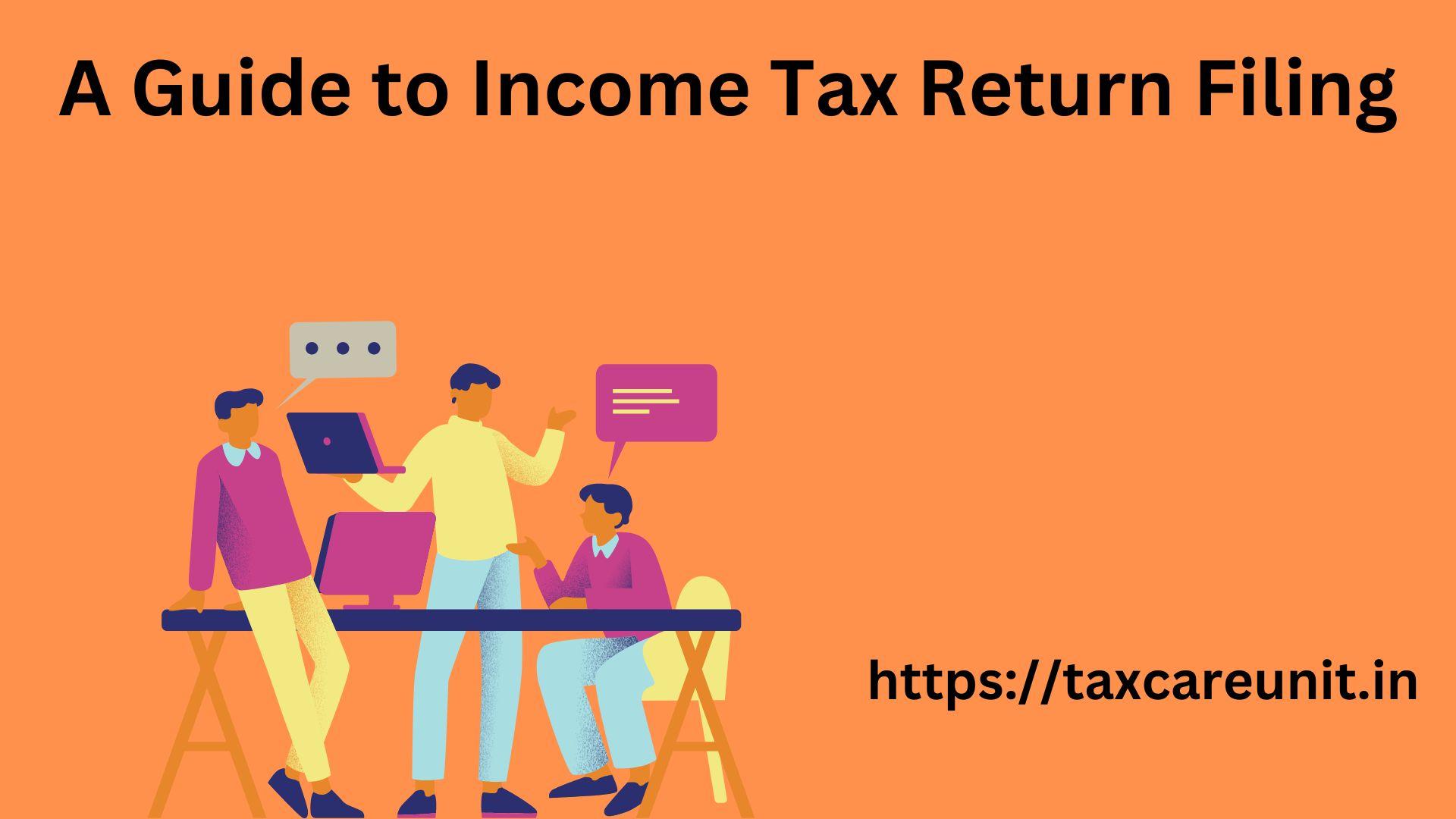Income tax return filing is a crucial financial responsibility that individuals and businesses must fulfill each year. Here's a brief overview of Income tax return filing
What is it?
Income tax return filing is the process of reporting your annual income, expenses, deductions, and tax liability to the government. It is a legal requirement in most countries, including the United States.
Who Needs to File?
Generally, anyone who earns income above a certain threshold is required to file an income tax return. This includes individuals, self-employed individuals, businesses, and corporations.
Compliance
It ensures you are complying with tax laws.
Tax Calculation It calculates the amount of tax you owe or the refund you may receive.
Tax Deductions and Credits
By claiming tax credits (such as the earned income tax credit and the child tax credit) and deductions (such as mortgage interest and student loan interest), taxpayers can lower their taxable income.
Tax Professionals
Many individuals and businesses seek the assistance of tax professionals (like CPAs or tax advisors) to ensure accurate and efficient tax return filing.
Refunds and Payments
If, throughout the year, you overpaid taxes, you can get a refund after filing. On the other hand, you have to pay the taxes you owe by the deadline.
Audit Risk
Filing errors or inconsistencies can increase your risk of being audited by tax authorities. It's essential to maintain accurate records and report income and deductions truthfully.
Penalties
Late or incorrect filing can result in penalties and interest charges, so it's essential to meet deadlines and report accurately.
Tax Brackets
Different tax rates apply to different income levels. The amount of taxes you owe is determined by your tax bracket; larger incomes are often subject to higher rates of taxation.
State and Local Taxes
In addition to federal income tax, most individuals also pay state and local income taxes. These rates and rules vary by location.
Filing Status
Your filing status (single, married, head of household, etc.) can significantly impact your tax liability and eligibility for certain deductions and credits.
Tax Planning
To reduce their tax liability, many people use tax planning techniques all year long. This might include putting money into retirement accounts, giving to charities, or taking advantage of tax-advantaged savings plans.
Record Keeping
It's essential to retain copies of your tax returns and supporting documents for several years in case of an audit or the need to amend previous returns.
E-filing Benefits
E-filing offers advantages like faster processing, more accurate calculations, and the ability to receive refunds via direct deposit.
Tax Software
Software such as TurboTax or H&R Block is used by many individuals and businesses to streamline the tax filing process. The relevant computations and actions are walked users through by these programs.
Tax Professionals
Certified tax professionals, such as Certified Public Accountants (CPAs) or Enrolled Agents (EAs), can provide expert advice, especially for complex tax situations.
Tax Credits for Education
There are tax credits available for education expenses, such as the American Opportunity Credit and the Lifetime Learning Credit, which can help reduce the cost of higher education.
Tax Deductions for Homeowners
Homeowners may benefit from deductions like mortgage interest and property taxes, which can reduce their taxable income.
Tax Changes
Tax laws and regulations can change from year to year, so it's crucial to stay informed about any updates that may affect your tax return.
Conclusion
Tax laws and regulations can change, so it's essential to stay informed about any updates that may impact your tax return. By fulfilling your Income tax return filing obligations diligently and responsibly, you can avoid penalties and contribute to the functioning of government programs and services that benefit society as a whole.

